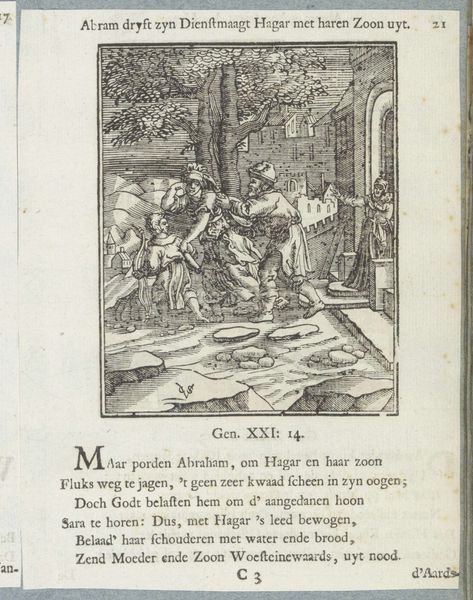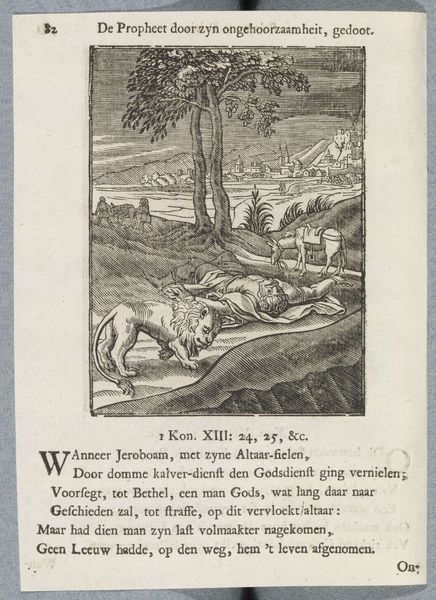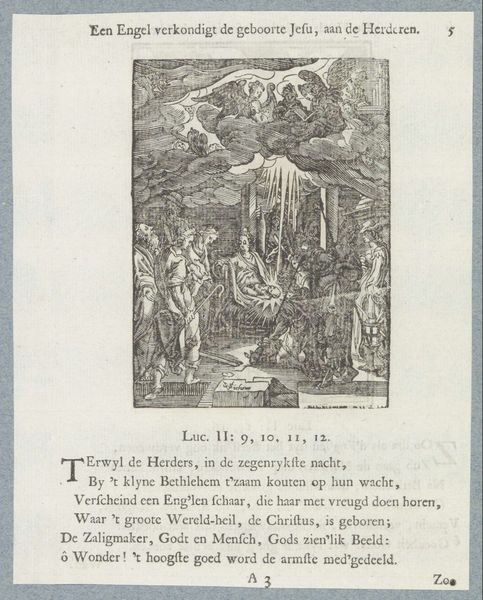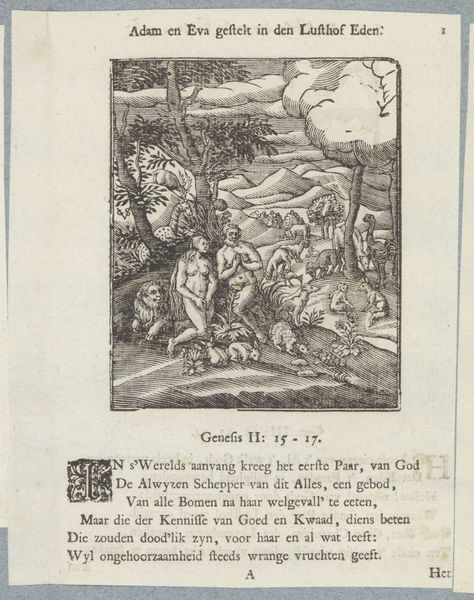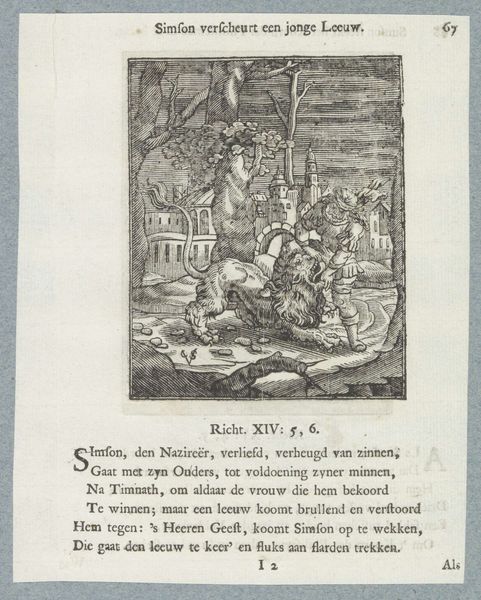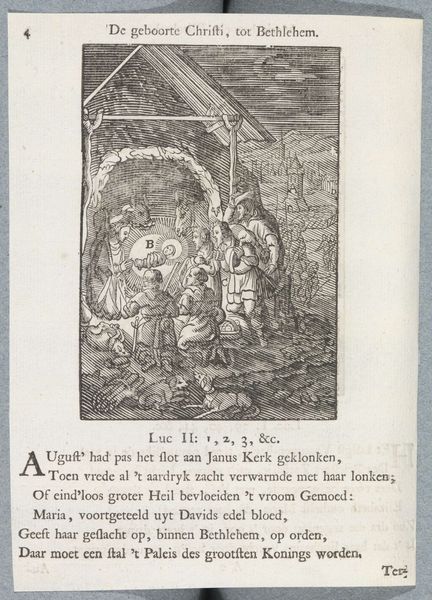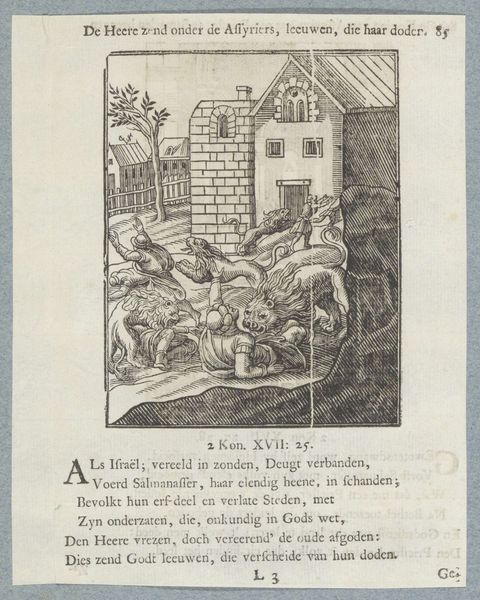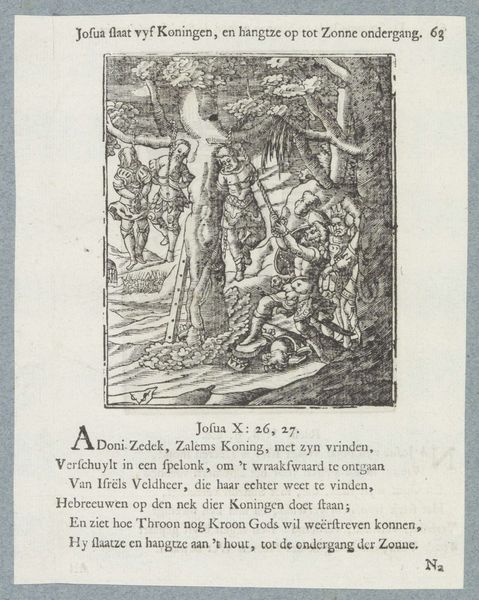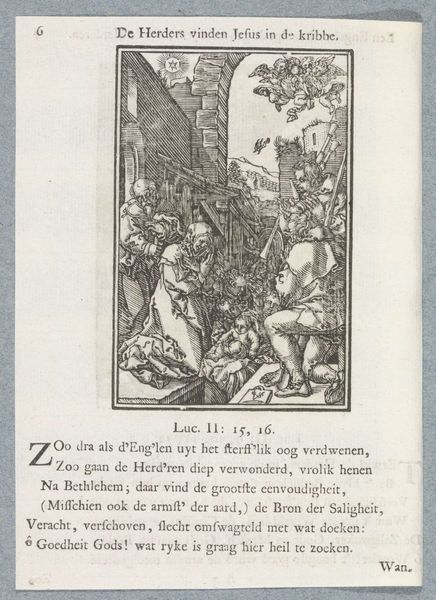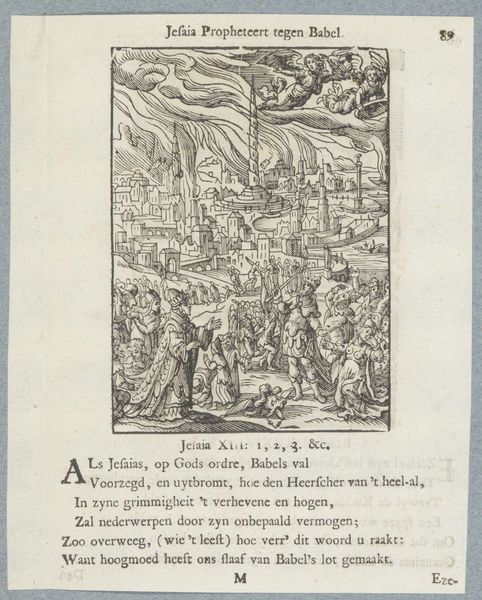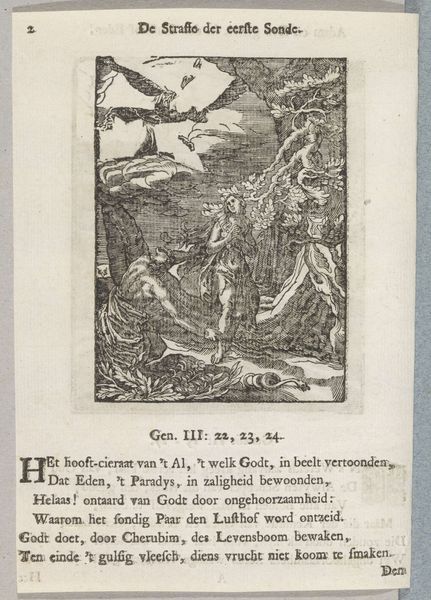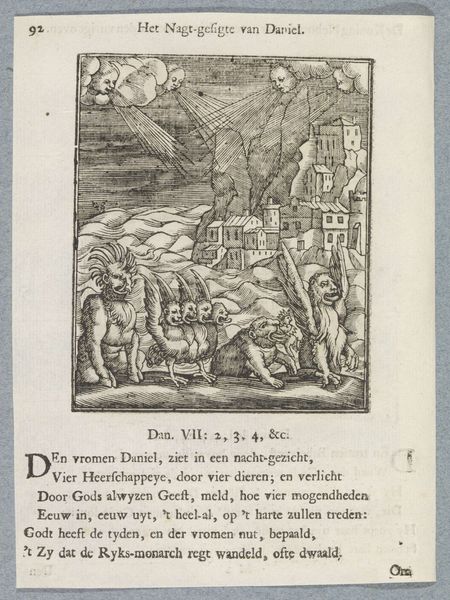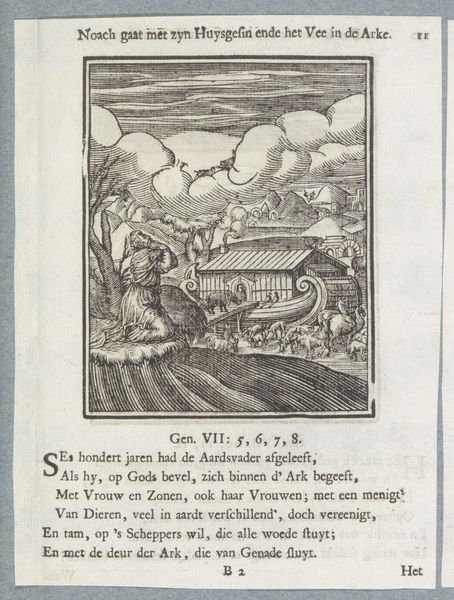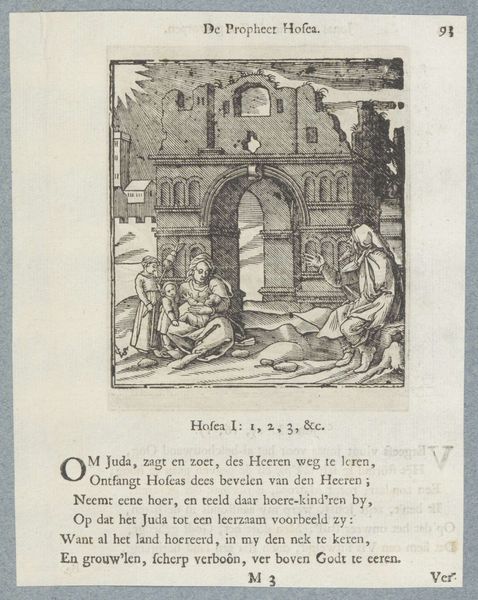
drawing, print, engraving
#
drawing
#
narrative-art
#
baroque
# print
#
landscape
#
figuration
#
line
#
genre-painting
#
history-painting
#
engraving
Dimensions: height 111 mm, width 84 mm, height 171 mm, width 134 mm
Copyright: Rijks Museum: Open Domain
This is a woodcut made by Christoffel van Sichem II, illustrating Moses slaying the Egyptian. Here, the act of burying the body is the dominant motif, resonating with themes of concealment and the burial of inconvenient truths. We see echoes of this burial motif throughout art history, such as in depictions of the entombment of Christ. Yet, here, instead of reverence, we see the furtive act of hiding a crime. The gesture of Moses covering the body speaks to a deeper psychological impulse: the desire to bury the past, to conceal actions that haunt us. This primal act connects to our subconscious understanding of guilt and the attempt to suppress memory. Consider how this symbol has evolved; from sacred rituals of honoring the dead to desperate attempts to hide misdeeds, the act of burial remains a powerful force, engaging viewers on a deep, subconscious level. It’s a cyclical progression, where the motif resurfaces, evolves, and takes on new meanings in different historical contexts.
Comments
No comments
Be the first to comment and join the conversation on the ultimate creative platform.
